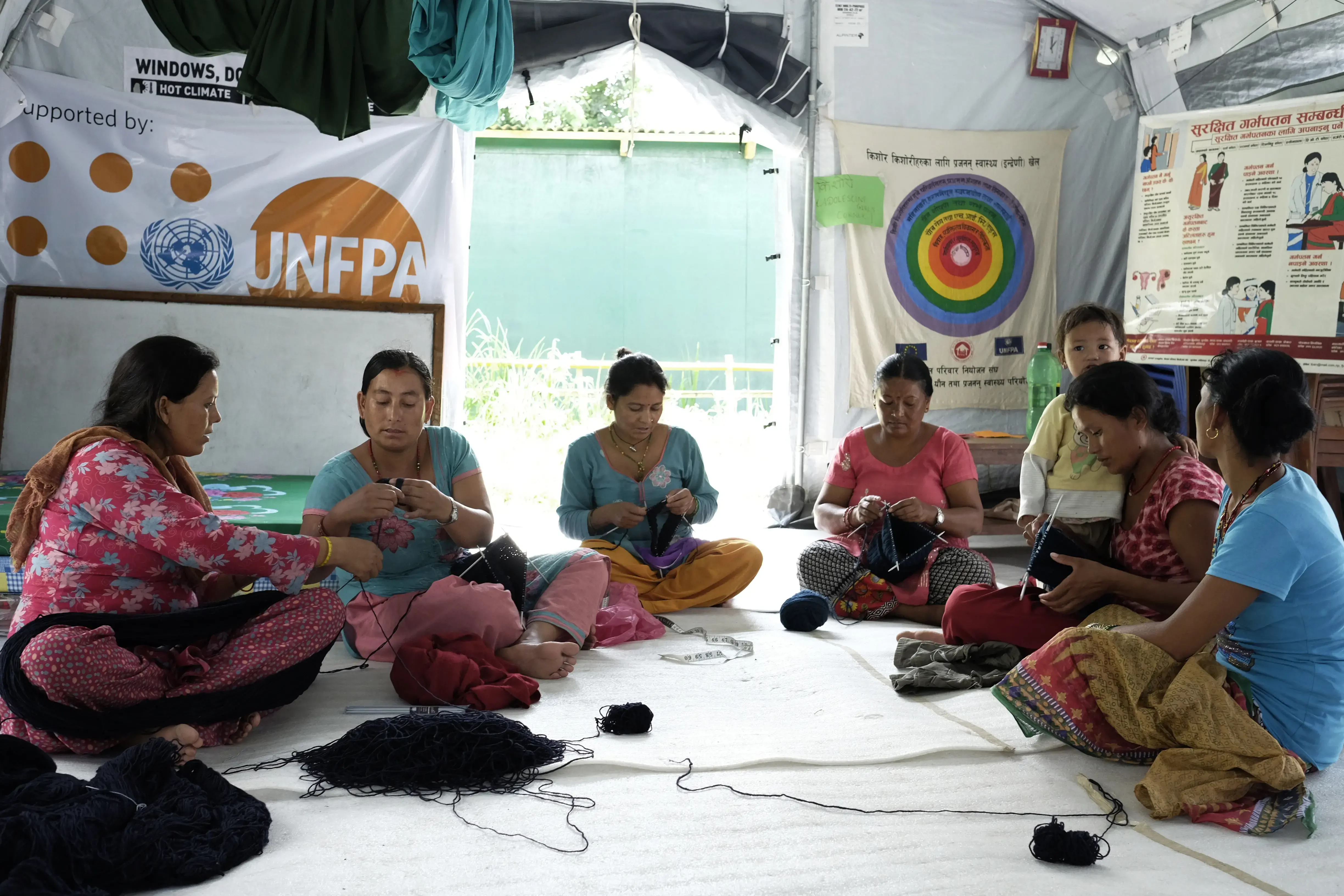International Women’s Day, celebrated globally on 8 March, is dedicated to reflecting on the achievements of ordinary women who have made an extraordinary impact in their countries and communities, and to celebrate the contributions of women all around the world.
In Nepal, the day is a time to reflect on the progress the country has made towards gender equality, call for change and celebrate the numerous acts of courage and determination made by ordinary Nepali women who have played an extraordinary role in the history of their countries and communities.
UNFPA Nepal is working with the government, development partners and local stakeholders to work expand the possibilities for Nepali women and girls to lead healthy and productive lives. In addition to its regular programmes in the center and 18 districts, UNFPA with the support of Swiss Agency for Development and Cooperation and the Norwegian Embassy is working with the Ministry of Women, Children and Social Welfare as well as with local partners in implementing GBV prevention and response programmes in the seven districts — Bajura, Bajhang, Achham, Baitadi, Udayapur, Sindhuli and Okhaldhunga.
GBV in Nepal
Gender-based violence occurs as a result of the normative role expectations associated with each gender, along with the unequal power relationships between genders, within the context of a specific society. Domestic violence, marital rape, dowry-related violence, child marriage, polygamy, female infanticide, witchcraft accusations, Chhaupadi, and trafficking of women and girls for sexual exploitation are common GBV issues in Nepal.
Survivors of violence can experience both physical and psychological distress. They may suffer sexual and reproductive health consequences, including forced and unwanted pregnancies, unsafe abortions, traumatic fistula, sexually transmitted infections including HIV, and even death.
UNFPA Response
Supporting clinical protocol on the management of GBV
Developed in 2015 by the Ministry of Health and Population with UNFPA and JPHIEGO’s technical and financial support and endorsed by the cabinet, the protocol aims to ensure comprehensive knowledge among health service providers to provide quality care and response to GBV survivors. The accompanying training package empowers health care providers to identify GBV cases, conduct a clinical assessment of the survivor, provide psycho-social first aid, collect evidence and refer the survivors to adequate structures, such as Women Service Centers, also called safe houses.
Supporting health response to GBV
UNFPA together with the government and partners supports the establishment and strengthening of One Stop Crisis Management Centres (OCMCs) at district hospitals to provide coordinated and free services to GBV survivors through health treatment and care, as well as referral to legal services, protection, and shelter. UNFPA also works together with the GoN to establish and strengthen Women’s Service Centres (Safe Houses) in several districts; the centers provide temporary shelter for survivors as well as food, clothes, and protection. The safe houses are directly linked with the OCMCs for a referral to a range of other services to ensure that the needs of GBV survivors are met.
Preventing harmful practices including child, early and forced marriages
UNFPA works to prevent early marriage by working at all levels: at the community level to empower adolescent girls with life skills training and support, as well as with parents, community and influential members to create an enabling local environment. At the policy level, it aims to address legislative and policy gaps and build the evidence base on early marriage. UNFPA also works to ensure that girls who are already married can receive family planning support to prevent early pregnancy, which can have serious health implications.
Earthquake Emergency Response
In times of upheaval or natural disasters, women and girls without protection are at extra risk of gender-based violence, unwanted pregnancies, trafficking and child marriage. UNFPA supported the following interventions following the 2015 earthquake to prevent and respond to GBV:
- Female-Friendly Spaces (FFS) in 14 districts, as a place where women and adolescent girls could go to at any time to feel safe and empowered and have access to information, education, recreational activities, support and services, including on reproductive health, legal rights, childcare and prevention/response to GBV, and get the appropriate referrals;
- Dignity Kits were distributed to address women’s urgent need to access culturally-appropriate clothing hygiene item and a torch, without which women would be more vulnerable after losing their belongings and houses;
- Post-rape treatment kits were also distributed to all 14 most affected districts to ensure the availability of emergency and prophylaxis medicine at district hospitals and OCMCs. Extensive training on GBV including Clinical Management Rape was carried out to health service providers;
- 14 psychosocial counselors from 14 districts, most affected by the earthquake, were trained to provide mental health services;
- UNFPA supported a total of 80 maternity units in the areas where health services, including reproductive health, had been disrupted by the earthquake. This included the provision of reproductive health kits, furniture and other essential instruments/equipment and supplies, including delivery tables, instrument trolleys, Intra-Venus stands and examination lights and blankets.
- UNFPA supported a total of 132 comprehensive mobile reproductive health camps and reached 105,000 populations in the 14 most affected districts, primarily in the remote areas where access to health facilities was difficult.



